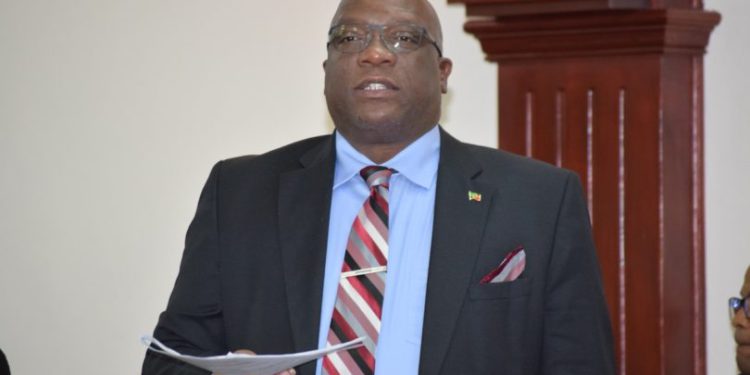BASSETERRE, ST. KITTS, JANUARY 22nd, 2017 (PRESS SEC) — Prime Minister Dr. the Honourable Timothy Harris said on Friday, January 20th, 2017 in the National Assembly that the preliminary data outlining the fiscal outcomes for the year ending 2016 show a continuation of surpluses for St. Kitts and Nevis, an indication that its public-sector finances are being managed well by his Team Unity administration.
“The preliminary data show that for 2016 the fiscal operations resulted in a recurrent account surplus of $128.3 million, an overall surplus of $130.3 million and a primary surplus of $154.7 million,” Prime Minister Harris, who is the Minister of Finance, said on Friday.
“These three accounts to which I have referenced are part of what is considered the economic classification data. They are the principal accounts to which persons who do assessments of our country and every other country look for a measure of its performance. Yes, this is an international indicator of how well a country is managed,” Dr. Harris also said.
The Honourable Prime Minister added that, “I am advised by the Finance Ministry that the overall and primary surpluses reported here were higher than the Budget for 2016 by $52.7 million [overall surplus], that is 68 percent, and the other [primary surplus] by $47.9 million or 44.9 percent, respectively. Mr. Speaker, the fiscal data to which I have just referred are indicative of a country that is well, well managed.”
The primary budget balance, which is the difference between expenditure and revenue, excluding interest payments, is described as a key determinant of government debt dynamics. A primary surplus – which is achieved when revenue is greater than expenditure, excluding interest payments – needs to be generated over an extended period of time in order to stabilize a government’s debt-to-GDP ratio and subsequently put it on a declining path. In essence, a primary budget surplus enables a government to make payments toward its existing debt, thereby causing its debt stock to fall.
According to the Governor of the Eastern Caribbean Central Bank (ECCB), Mr. Timothy Antoine, when he made a presentation to the Cabinet of Ministers on Monday, April 18th, 2016, St. Kitts and Nevis’ debt-to-GDP ratio stood at 61.64 percent compared to 76.04 percent for the eight-member Eastern Caribbean Currency Union as a whole, as at December 2015. The ECCB’s debt-to-GDP ratio target, which is in line with international standards, is 60 percent.
In the International Monetary Fund’s Staff Report for the 2011 Article IV Consultation and Request for Stand-By Arrangement dated July 20th, 2011, it was noted that St. Kitts and Nevis held “a public debt-to-GDP ratio of about 200 percent at end-December 2010.”
During his 2017 New Year’s Day Address, Prime Minister Dr. the Honourable Timothy Harris explained to the citizens and residents of St. Kitts and Nevis that, “Our fiscal surpluses have paved the way for us to pay off the former government’s debt contracted with the International Monetary Fund (IMF) in 2011.”
Dr. Harris added that, “Over the first 14 months of my Administration, the sum of EC$117.1 million was spent towards repayment of this debt. We have signaled that never again should our country be mismanaged to the extent that it needs a bailout from the IMF of the magnitude made necessary by the former administration.”
Prime Minister Harris also said in his New Year’s Day Address that, “The pain of that adjustment to the squandermania and profligacy of the bygone administration will not go away easily. The haircuts have disfigured many institutions, compromised their viability, led to the suspension of increments for our hardworking civil servants for three years in a row, an 85 percent increase in electricity tariff, and significant increases in water bills. Indeed, this was a dark and harsh period, which – while we remember – we must be careful never to repeat.”









